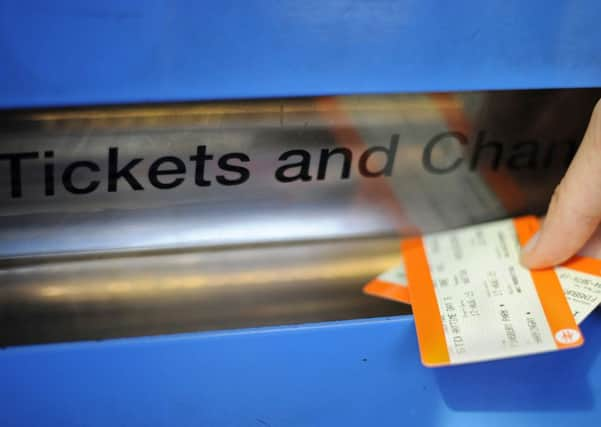Revealed: The true impact of Yorkshire's rail timetable chaos


New analysis by The Yorkshire Post today reveals the extent of the ongoing problems which have engulfed the region’s rail network since May 20, when the largest-ever revision of the national rail timetable came into effect – causing chaos across Northern England.
Figures from performance tracking website On Time Trains for the past six months show three of Yorkshire’s four busiest stations are in the bottom ten nationally for cancelled and delayed trains. York, where more than 2,000 services have been cancelled, is the worst of the 100 largest stations in the country – with Huddersfield second-worst and Sheffield seventh.
Advertisement
Hide AdAdvertisement
Hide AdLeeds is 12th worst –- making it the best performer of Yorkshire’s major railway stations. But even in Leeds, which handles more than twice the number of services than York, almost 3,500 trains have been cancelled, with one in 10 trains using the station over 10 minutes late. In contrast, nine of the top 10 best-performing stations are in London.
Smaller stations in Yorkshire fare even worse, making up half of the 10 worst-performing stations in the entire country. Slaithwaite in the Colne Valley is the worst in the UK, with just five per cent of services on time – the same percentage as the number that have been cancelled. Ravensthorpe is the third-worst, while Batley is the sixth-worst. Dewsbury is eighth and Malton ninth.
There was not a single Yorkshire station in the top 100 best performers, with the highest-ranked being the little-used Snaith in East Yorkshire, which was in 148th position.
Conservative MP for Pudsey and Defence Minister Stuart Andrew said the figures “are not good enough”. “We need rail companies and the network to redouble the efforts to sort this out so that hard-working passengers get the service they expect and deserve,” he said.
Advertisement
Hide AdAdvertisement
Hide AdIt was revealed this week that public spending on transport in Yorkshire has fallen by £18 per person a year while increasing £90 in London.
Paul Plummer, chief executive of the Rail Delivery Group, representing train operators, Network Rail and the rail supply chain, said: “While the number of incidents causing delays and cancellations is going down, each incident is having a bigger impact due to congestion on the network. The rail industry is delivering unprecedented investment to increase capacity across the country by tackling bottlenecks and easing pressure on the busiest parts of the railway.”